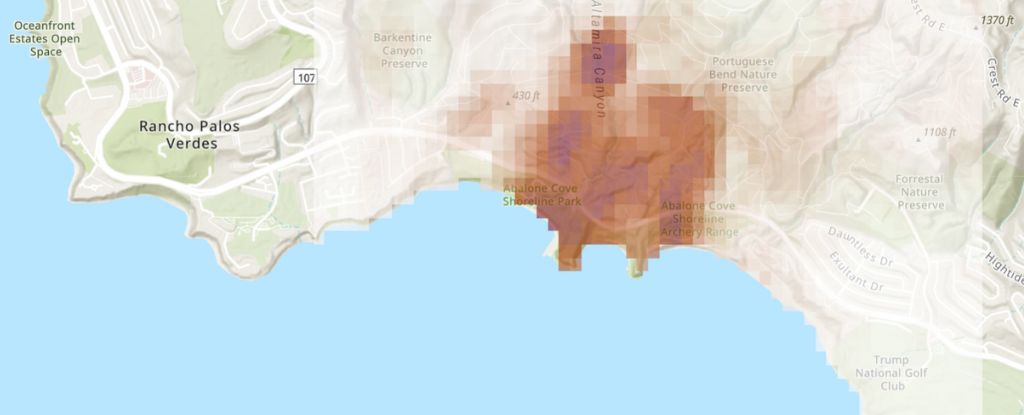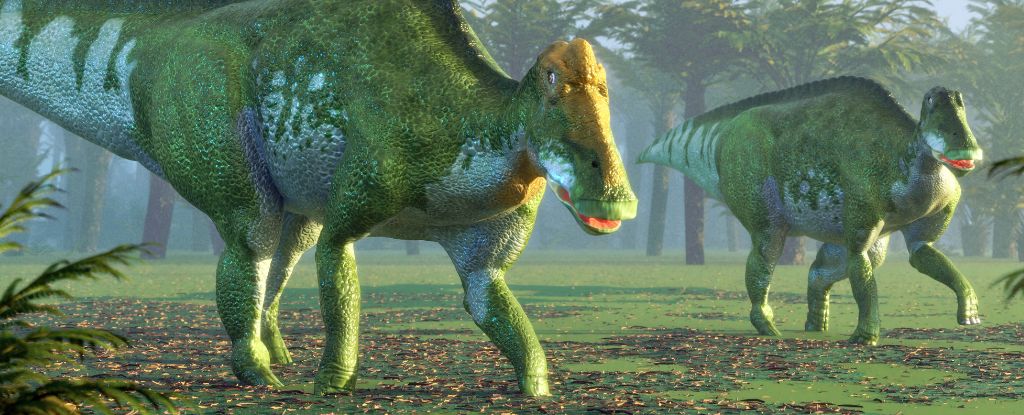ARTICLE AD
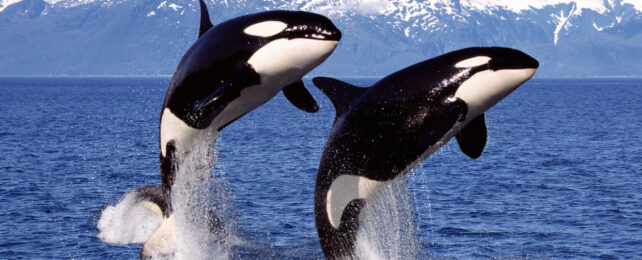 Orca's taste for shark livers confirmed in new study. (slowmotiongli/Getty Images)
Orca's taste for shark livers confirmed in new study. (slowmotiongli/Getty Images)
It's not just the white sharks off the South African coast of Gansbaai that feel the deep, primal fear known only to prey.
For years now, a single pair of orcas (Orcinus orca) has been recorded off the coast of Gansbaai, harrying and hunting the white sharks (Carcharodon carcharias) that make the area one of their homes, slurping out the sharks' nutrient-rich livers, leaving the rest of the carcasses to wash ashore.
It now appears that the behavior is more widespread than we knew. In 2023, off the southeastern coast of Australia, half a world away from Gansbaai, the remains of a 4.7-meter (15.4-foot) white shark washed ashore, a gaping hole in its abdomen ringed by ragged tooth marks, and a marked absence of a liver.
DNA sequencing has now confirmed that the culprit was none other than an orca.
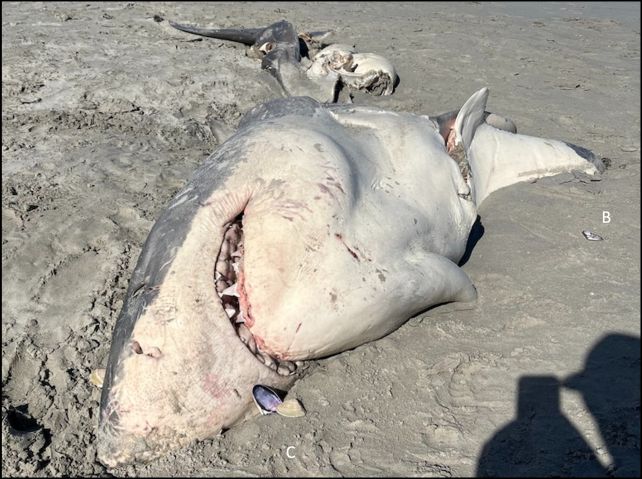 The DNA evidence of the orca attack was found in the bite marks on the shark's carcass. (Ben Johnson, Portland Bait and Tackle)
The DNA evidence of the orca attack was found in the bite marks on the shark's carcass. (Ben Johnson, Portland Bait and Tackle)"There were four distinctive bite wounds, one of which was characteristic of liver extraction by killer whale, similar to what has been observed in South Africa," says biologist Isabella Reeves, of Flinders University in Australia.
The researchers took swabs from the white shark's bite wounds and sequenced for any genetic material that the predator may have left behind. This confirmed the presence of orca DNA in the main bite, while three other wounds carried traces of DNA from scavenging broadnose sevengill sharks.
As we are discovering, the predation by orcas on cartilaginous fish such as sharks and rays isn't uncommon. Orcas are highly adaptable and highly intelligent, and around the world, different groups of orcas have developed their own strategies for hunting and feeding.
The strategy developed by the pair named Port and Starboard off the coast of South Africa is fascinating because it involves two such efficient species of marine predator, but a growing body of evidence suggests that it is not unique. Orcas in the Gulf of Mexico prey on whale sharks, for instance. And orcas off the coast of Australia have been recorded preying on multiple species of shark, including porbeagles, makos, blue sharks, tiger sharks, and ground sharks.
But the discovery of the white shark carcass in 2023 was the first known instance of orca predation of the species in Australian waters.
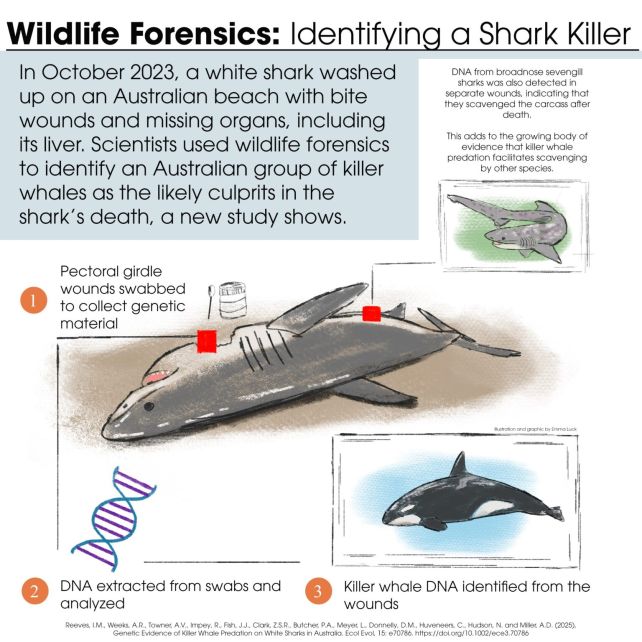 An infographic explaining how the research was conducted. (Emma Luck)
An infographic explaining how the research was conducted. (Emma Luck)"These findings provide compelling evidence of killer whale predation on white sharks in Australian waters, with a strong indication of selective liver consumption," Reeves says. "This suggests that such predation events may be more widespread and prevalent across the globe than previously believed."
Two days before the carcass washed ashore, near Portland in the Australian state of Victoria, two locally known orcas named Bent Tip and Ripple were seen hunting, and catching, large prey in nearby Bridgewater Bay. This may have been the hunt in question, although confirmation would be difficult to obtain.
All we know for now is that the culprit was orcas – but that's quite mind-blowing. Orcas have their own habitats, hunting grounds, and specialties. Different groups in different locations don't intermingle, communicate, or breed with each other. It raises some interesting questions about how similar hunting behavior could have emerged in two very different locations.
frameborder="0″ allow="accelerometer; autoplay; clipboard-write; encrypted-media; gyroscope; picture-in-picture; web-share" referrerpolicy="strict-origin-when-cross-origin" allowfullscreen>
It's possible that orca predation of white sharks is just a more widespread, normal behavior than we knew about. If this is the case, we need to learn more about it and how it affects the rest of the ecosystem.
The displacement of a top predator can have grave effects: in South Africa, for instance, reduced shark presence means a drop in shark predation on elephant seals, which could increase food competition for the seals later.
If orcas in Australian waters have started preying on white sharks, that could have implications for populations of the animals sharks normally eat.
"Evidence suggests that the white sharks being displaced or directly killed as a result of the killer whale predation in South Africa has led to cascading shifts in the wider marine ecosystem," says ecological geneticist Adam Miller of Flinders University.
"We know that white sharks are key regulators of ecosystem structure and functions, so it's very important we preserve these top predators. Therefore, it is important that we keep a tab on these types of interactions in Australian waters where possible."
The research has been published in Ecology & Evolution.

 2 hours ago
4
2 hours ago
4 